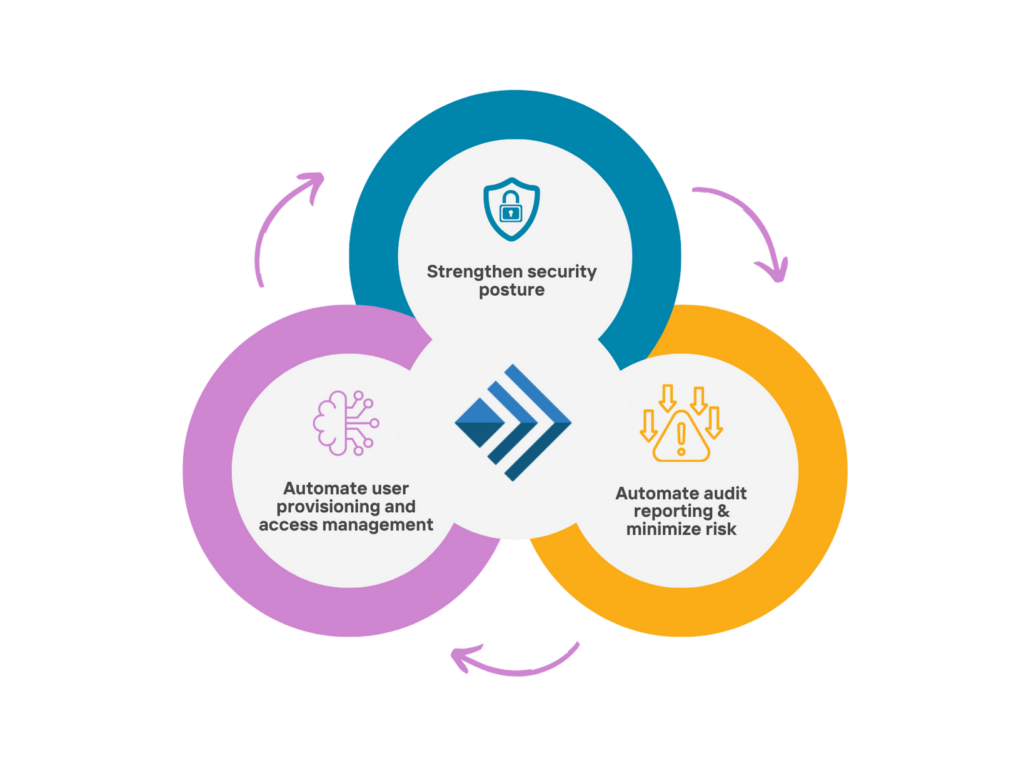
A prominent research firm has made a significant prediction, stating that around 70% of healthcare organizations will adopt digital-first strategies, implement interoperable workflows, and utilize consumer data applications by 2027. The primary objective of this transformation is to empower patients, improve their overall experience, and establish trust. Identity Governance and Administration (IGA) is at the forefront of this strategy, and IGA services are the primary means by which they are effectively implemented.
IGA Services and the Challenges of Healthcare Identity Management
While some healthcare organizations still face challenges, such as outdated systems and the need to comply with healthcare-related regulations, most prioritize digital transformation to revolutionize what is traditionally a manual operating system. Maintaining compliance and adhering to regulations will remain ongoing challenges for healthcare providers. However, keeping up with them and successfully implementing digital transformation can be significantly enhanced by employing to ensure the secure and compliant participation of all users, including humans, and connected devices, in utilizing IT resources.
With digital transformation initiatives, the need to embed robust identity governance into their identity fabric becomes the core of building a solid and robust system for healthcare providers. Today, hackers can sell a single medical record for $10 to $1000. The healthcare industry is not the only industry where internal actors are the most significant threat through an error or mistake. According to the 2023 Verizon report, 74% of all breaches include the human element, with people being involved either via Error, privilege misuse, use of stolen credentials – thus making it more relevant to have relevant governance process to protect and secure identities and accesses.
Identity Governance and Administration (IGA) plays a significant role in enhancing digital transformation success for healthcare providers. This is through implementing processes, policies, and technologies that enable organizations to manage and govern digital identities and access to resources within their IT infrastructure. Through IGA services, healthcare organizations can implement a robust security strategy. These include regular security assessments, aligning with required compliance and standards, and a preventive approach towards access gaps. However, a healthcare organization often may not have the capacity to have a dedicated IGA team. That is where an IGA service provider can come to the rescue.
5 Ways that IGA services Contribute to the Success of Digital Transformation Initiatives
- Secure Access Management: IGA services support healthcare providers in their execution of robust access controls and enforcement of security policies across their digital systems. By identifying the IGA tools that best suit the organization’s needs, authorization processes to access sensitive information (patient data, applications, systems, etc.) is established most efficiently. This mitigates the risk of unauthorized access, data breaches, and potential compliance violations. Often healthcare organizations do not know which IGA technology will best serve their goals and meet their budget. IGA services support and address that need.
- Streamlined Identity Lifecycle Management: An IGA service provider manages the complete lifecycle of user identities. This includes user onboarding, role-based provisioning, access modifications, and de-provisioning. It also extends to maintaining accurate and up-to-date user information and ensuring access privileges align with users’ roles and responsibilities. These processes remove the burden of internal-only management and free up personnel resources.
- Compliance and Audit Readiness: The healthcare industry is subject to strict regulatory frameworks. These include the Health Insurance Portability and Accountability Act (HIPAA) in the United States or the General Data Protection Regulation (GDPR) in the European Union. An IGA service provider can help healthcare providers set processes and policies that meet these compliance requirements. These include providing comprehensive visibility into user access rights, facilitating segregation of duties (SoD) controls, and generating audit trails for access activities. An IGA service provider thus ensures that healthcare organizations can demonstrate compliance during audits and avoid penalties for non-compliance.
- User Experience and Productivity: Digital transformation initiatives involve implementing new technologies, applications, and systems across the healthcare ecosystem. Oftentimes migration from legacy systems to these modern technologies can become complex in pursuit of establishing strict security protocols. In this journey of migration the user experience may degrade. IGA services enable a simplified and enhanced user experience by providing adequate and seamless single sign-on (SSO) capabilities. This allows users to access multiple applications via a single set of credentials. This not only improves user productivity but also reduces the burden of password management and enhances security by promoting the use of strong and unique passwords.
- Risk Management: IGA service programs can enable healthcare providers to effectively manage and mitigate user access and entitlements risks. By enforcing least privilege principles and implementing automated access review processes, organizations can ensure that users have the necessary access permissions where needed and minimize the risk of unauthorized access or data breaches. But for most security leaders in healthcare organizations, this may mean needing help to keep up with the risks as threats become sophisticated and identity technologies evolve. An IGA service provider’s core business is to stay updated on the tools and the threats that may loom in the future.
Get on Track for Effective Digital Transformation
Healthcare organizations face many challenges today but must prioritize patient care and provide the most seamless experience to their patients, employees, and partners. While partnering with an IGA service provider is worth the investment, healthcare organizations must define the need for one and do due diligence on the best-suited partner. Healthcare enterprises should consider working with an experienced and certified team of IGA professionals or specialized vendors in IAM who focus only on identity.
